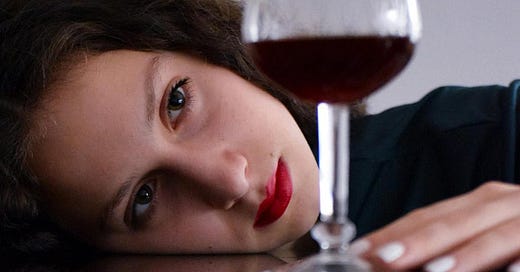Can Alcohol Help You Sleep?
The answer is clearly yes. And emphatically no. Oh, heck, I’ll just test it.

You might think alcohol helps you sleep. And you’d be correct. Alcohol is also terrible for sleep.
How can both be true?
Your intrepid health reporter has not only reviewed the research and spoken with the experts, he’s tested this one out extensively — in the name of science, of course. And here’s the sobering truth:
When I drink too much, I zonk out early and quickly, which is to be expected. But that quick trip to somnolence doesn’t stick. Later, I’m tossing and turning, waking up and feeling generally lousy, getting up to pee, then spending what feels like hours in a state of quasi-wakefulness with dreams more vivid than usual.
All the while, my wrist-worn sleep tracker is monitoring heart rate, body movement and other indicators, and in the morning it ranks my sleep success from zero to 100. When I have one too many, my score is typically in the 60s or lower. When I don’t drink, I almost always score in the 80s or 90s. While sleep trackers are not 100% accurate, the score usually aligns pretty well with how I feel the next day. On days when I feel clear-headed, creative and physically energetic, I’ll check my sleep score, and sure enough: It’s usually high. After a booze-induced bad night and a low score, I’m lazy, tired, unfocused, unmotivated.
But that’s what scientists call anecdotal evidence. It doesn’t prove a thing. So what does the actual science say?
The deeply disturbing reality
Alcohol is a sedative, producing calmness (at least for some people). It’s also what’s known as a somnogen, or sleep inducer. A very powerful one. So powerful it’s called “the most commonly used over-the-counter sleep aid,” scientists who studied the effect wrote in the Brain Research Bulletin.
Simply put, a drink or two makes you feel sleepy, and therefore helps you fall asleep sooner and more quickly than normal.
Some might call this passing out.
But whatever, it works. Until it doesn’t.
“The somnogenic effects, after alcohol intake, slowly wane off and [are] often followed by sleep disruptions during the rest of the night,” those same scientists concluded.
Keep reading with a 7-day free trial
Subscribe to Wise & Well to keep reading this post and get 7 days of free access to the full post archives.



